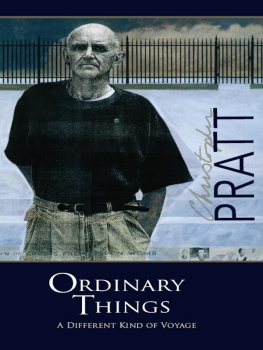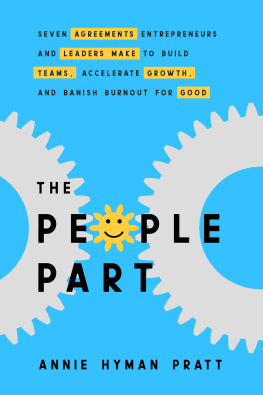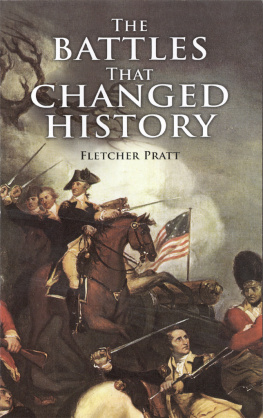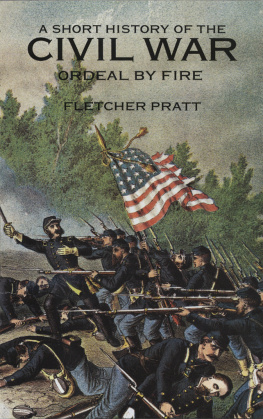Published by Louisiana State University Press
Copyright 2001 by Louisiana State University Press
All rights reserved
Manufactured in the United States of America
Louisiana Paperback Edition, 2014
Designer : Amanda McDonald Scallan
Typeface : Sabon
Typesetter : Coghill Composition Co., Inc.
Library of Congress Cataloging-in-Publication Data
Evans, Curtis J.
The conquest of labor : Daniel Pratt and southern industrialization / Curtis J. Evans.
p. cm. (Southern biography series)
Includes bibliographical referenced (p. ) and index.
ISBN 0-8071-2695-0 (cloth : alk. paper)
1. Pratt, Daniel, 1799-1873. 2. Prattville (Ala.)Biography.
3. IndustrializationAlabamaPrattvilleHistory19th century. 4. IndustrialistsAlabamaPrattvilleBiography. I.
Title. II. Series.
F334.P9 E93 2001
976.1'463dc21
2001000064
ISBN 978-0-8071-5681-0 (pbk. : alk. paper) ISBN 978-0-8071-5682-7 (pdf) ISBN 978-0-8071-5683-4 (epub) ISBN 978-0-8071-5684-1 (mobi)
The paper in this book meets the guidelines for permanence and durability of the Committee on Production Guidelines for Book Longevity of the Council on Library Resources.

ACKNOWLEDGMENTS
A good biography of Daniel Pratt has yet to be written, Eugene Genovese noted thirty-five years ago in his hugely influential book The Political Economy of Slavery. The quality of this present work, which revises much of modern Pratt scholarship, I shall leave to the reader to decide, but at least it can now be said that a scholarly biography of Pratt finally has seen the light of day. Without the prior works of Genovese, Randall Miller, and Malcolm McMillan (who generously arranged for his papers to be turned over to the archives of Auburn University at his death), however, I very much doubt that this book ever would have survived the night. In addition, William Cooper determinedly saw the project through its dissertation stage at Louisiana State University. Since then, Professor Cooper has continued to provide valuable advice and support, as has Bertram Wyatt-Brown, current editor of the LSU Southern Biography Series. My thanks additionally go out to Maureen Hewitt, Sylvia Frank, and Jean C. Lee of LSU Press, as well as Larry Nobles, the best and most selfless local historian I have been fortunate enough to encounter, and Tommy Brown of Continental Eagle Corporation, the steadfast caretaker of Daniel Pratt and Companys surviving business records. Lastly, I thank my parents, who are still refraining from saying I told you so ten years after I decided to abandon a career in law to become a historian. I hope this book is worth the sacrifices.
THE CONQUEST OF LABOR
INTRODUCTION
From the stormy Atlantic their hosts are advancing
On the Far Rocky Mountains their legions are seen
Down the wilderness valleys their watchlights are glancing,
And the broad blue Pacific exults in their sheen.
Ever around them rich blessings are springing
Ever before them the darkness retires
Peace lends her song to their reveilles ringing
And Plenty reclines by their bivouac fires.
Where round the dark anvil the red forge is gleaming
Where the swift shuttle flies, where the plow cleaves the sod
Round the hearth-stones of Toil rise the ramparts of Freemen,
The Altars of Home and the Temples of God.
Francis Orray Ticknor, The Conquest of Labor
Francis Orray Ticknor, a Georgia physician and poet and a first cousin of Daniel Pratts wife, Esther Ticknor, inscribed his poem The Conquest of Labor (1854) to Pratt, a New Hampshire native who had become the most prominent manufacturer in the neighboring state of Alabama. To the extent that Ticknor is remembered at all today, it is for his pro-Confederacy Civil War poems, such as Little Giffen, not for his paean to a northern-born industrialist. Here we confront a seeming paradox. Many of Ticknors poems celebrate the South and condemn the Northften in very strident terms. In The Old Rifleman, for example, Ticknor has his protagonist declare to his rifle, Old Bess: If Doodle must be meddling, Why / Theres only this to do / Select the dark spot in his eye / And let the daylight through! More specifically, one poem, Slave of the Dismal Scamp (a reply to Henry Wadsworth Longfellows antislavery Slave in the Dismal Swamp), explicitly attacks the northern factory system for cruelly exploiting helpless female workers:
Under a rattling whirligig,
Which a Yankee had taught to spin,
A maiden sat, with bosom flat
And fingers long and thin;
And she was the slave of a dismal scamp,
A man with a soul of tin.
Yet the same man who penned this vitriolic denunciation of northern scamp industrialists with souls of tin had only words of praise for Daniel Pratt, who in addition to being one of the nations most important cotton-gin manufacturers, employed dozens of women and children in a cotton mill. It would seem that Ticknor, despite his anti-North blusteringprovoked, no doubt, by northern challenges over territorial slavery and other mattersactually thought industry a good thing. Where the swift shuttle flew, after all, one found ramparts of Freemen, Altars of Home, and Temples of God. This conclusion is bolstered by another, undated Ticknor poem, Reminiscenceson Visiting the Eagle and Phoenix Mills at Columbus, Ga., wherein he expressed admiration and amazement at the technological wonder of these cotton factories on the bank of the Chattahoochee River:
O! Mighty power of human thought,...
That such a wondrous work was wrought!
In rocks and falling water!
The force to rend the continent,
Hurled headlong down its bed,
Halts for this severed filament
Of weightless, floating thread!
The demon of a world a-whir
With rattle, clash and whirl
Held in a leash of gossamer
And guided by a girl!
In light of such poems, it comes as no surprise to learn that Ticknor also served as a Columbus sales agent for Pratt cotton gins.
One might dismiss Ticknor as an unrepresentative southerner. After all, not only was Daniel Pratt an in-law, but Ticknors own father was a Connecticut Yankee who had once run an academy in Clinton, Georgia. But Francis Orray Ticknors receptivity to southern industry was by no means atypical, as the career of Pratt demonstrates.
Daniel Pratt migrated to Alabama in 1833 after a fourteen-year career in Georgia, first as a carpenter-architect and then as a business partner of pioneer cotton-gin manufacturer Samuel Griswold. In 1839, Pratt established his own gin factory at Prattville, located in central Alabama. Pratt enjoyed great success as a gin manufacturer, and soon his machines could be found on plantations from Georgia to Texas. By 1860, Pratt had become the countrys largest cotton-gin maker, manufacturing a quarter of the gins made in the United States. To build his gins, he employed scores of mechanics, a majority of whom were white southerners.













